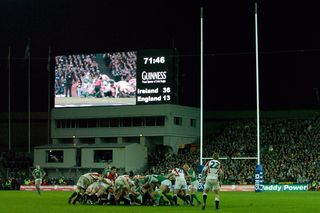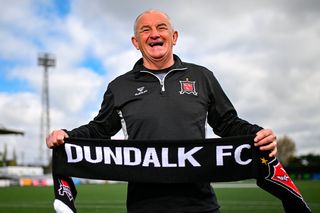Television: Did Saturday nights ever really have that X factor?
Leaving at the first stop: Dan Snow, one of four presenters the BBC dispatched to bring us World's Busiest Railway
The cheerleading narrator of The Saturday Night Show (UTV Ireland) assured us that the evening in question was "the biggest night on TV, the night for entertainment, the night when all the stars come out to play".
That may have been true in an era when everyone had just a few channels from which to choose and when a Morecambe and Wise special could attract more than 20 million viewers, but it's certainly not the case today, most broadcasters filling their Saturday night schedules either with filler dross or with tired old formats - did I mention that a new season of The X Factor begins tonight on TV3?
So the two-part The Saturday Night Show should have been a reminder of the good old days, except that all it reminded older viewers was that the good old days were mostly cringeworthy.
Yes, there was Morecambe and Wise, though by now even they look quaintly dated, but who ever thought Little and Large were even remotely funny? Plainly the BBC did, allowing them 13 years of mirth-free Saturday nights, while ITV granted a whole decade of exposure to the even unfunnier Cannon and Ball.
"We've been blessed", Bobby Ball reflected in the documentary, and Tommy Cannon affirmed that "we've had a great career", but their demeanour suggested bewilderment at the fact that they'd once been so famous and were now hardly a footnote in light entertainment history.
Meanwhile, RTÉ is clearly of the opinion that Saturday nights wouldn't be complete without yet another chat show, a belief that viewers can test for themselves when Ray D'Arcy occupies the chair recently vacated by Brendan O'Connor.
But if Irish Saturday nights are for B-listers selling their dubious wares to encouraging hosts, the end of summer across the water seems to be a time for embarking on trips - and in the case of Great Canal Journeys (Channel 4), very slow ones at that.
There was something charming about the earlier adventures of doting married couple Prunella Scales and Timothy West as they navigated England's waterways, but in this new series we've learned that the 83-year-old Scales is suffering from Alzheimer's - "a slight condition", West said with gentle understatement, his wife acknowledging that "it can be a nuisance sometimes".
This makes the current series difficult to watch by anyone for whom Scales will always be the terrifyingly in-control Sybil Fawlty, and it's hard not to wonder at the wisdom, or indeed rightness, of filming her in her poignant decline. Elsewhere, the journeys were by train, BBC4 reshowing Michael Portillo's informative and entertaining Italian jaunt in Great Continental Railway Journeys, and BBC2 requiring four presenters to make sense of World's Busiest Railway, which was shown over four consecutive nights.
This concerned India's rail system and it began in Mumbai's Chhatrapati Shivaji station, through which 1,500 trains run every day. And the figures got even more startling - at rush hour each train carries up to 5,000 passengers, many of them precariously hanging out of the doorless carriages, while nine people are killed on the Mumbai network each day, either by falling out of trains or being run over as they cross the tracks.
Unfortunately, we had gung-ho presenter Dan Snow bellowing at us as he made his way through the teeming station (I kept hoping one of the startled commuters would punch him), and we had an interminable sequence as he and his co-hosts tried to board peak-time trains. And so I decided to give the remaining three instalments a miss.
Last year, BBC1's 24 Hours in the Past rounded up a motley crew of celebrities and required them to get down and dirty in a bygone Britain, and now Channel 4's new series, Time Crashers, is copying the format, though a lot more agreeably.
That's largely because the celebs, some of whom were actually familiar to me, are a much more agreeable bunch - Kirstie Alley in particular showing the comic chops that made her so endearing in Cheers.
In this first instalment, they were in an Elizabethan manor and were required to perform the servantly duties expected of their 1588 counterparts. Various historians and other experts were also on hand, and the programme turned out to be as informative as it was amiable, if not exactly required viewing.
That honour fell to Sinatra: All or Nothing At All (BBC4), the first instalment of which I reviewed a few weeks back on the mistaken impression that it was a one-off. In fact, it was a four-parter, with director Alex Gibney expertly weaving together fascinating archive footage, reminscences by family and friends and interviews with the man himself.
The series didn't flinch from addressing his less endearing traits - his mob associations, his tantrums, his vindictiveness - but it also paid scrupulous attention to his greatness as an interpreter of popular song and it succeeded brilliantly, too, as a chronicle of the times in which he lived. Outstanding.
Join the Irish Independent WhatsApp channel
Stay up to date with all the latest news














